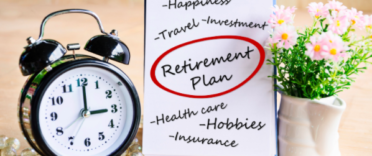
But is this such a sensible approach? Below I lay out the pros and cons of both property and conventional pension products. But remember the use of these two options does not have to be mutually exclusive.
Property
Pros
- Property is easy to understand
- It is a tangible asset
- Historically house prices have outpaced inflation by around 2% a year
- All the growth in the value of your house is free from tax
- Tax is only paid upon sale and if it's your primary residence it will be free from Capital Gains Tax (CGT)
- You get to use the asset throughout its life
- If you have a buy-to-let property then you have access to the income (rent) before you retire
- You can release equity from the property to fund your retirement by either downsizing or using an equity release scheme. But equity release schemes are not to be taken lightly
- Passing property on to the next generation is relatively straightforward
Cons
- House prices are based on sentiment and areas and property types become fashionable. These are factors you have no control over
- By basing your retirement on one asset class you are lumping all your eggs into one basket. If there is a housing crash just before you plan on retiring you could find your 'pension' has disappeared before your eyes
- Your options are reduced when it comes to retiring. By following the property route you are consigning yourself to downsizing or equity release when you come to retire. As I've said before financial planning is all about creating options to meet your future dreams, not limiting them
- Downsizing will involve costs running into £1,000s
- When you come to retirement you may have changed your mind about downsizing
- If you die Inheritance Tax (IHT) will be chargeable at 40% if the value is above the current IHT free band of £325,000 (unless you pay for IHT/trust planning)
- Running costs – property costs money to maintain, particularly buy-to-let property. These need to be taken into account when considering 'investment performance'
Pension
Pros
- The most flexible types of pension allow investment in a wide range of assets including commercial property. With increased investment flexibility comes the increased potential for improved long-term returns through diversification
- It is easy to control investment risk with a pension (ultimately you can always switch assets held within the pension wrapper into cash)
- All growth is free of tax (both income and capital gains) even on the sale of assets within the pension wrapper
- 25% of the your pension fund can be taken tax free when you retire.
- A pension fund can be passed on free of IHT in the event of your death prior to taking retirement benefits
- Currently you get income tax relief on pension contributions at your highest marginal rate up to a maximum contribution of £50,000 per annum (although contributions can be made in excess of this in certain circumstances). This means your pension contribution gets a 20%, 40% or even 50% boost
- In the event of your death while taking retirement benefits the fund can be used to provide benefits for dependants
- For people made bankrupt after 29 May 2000, no approved pension will form part of their estate in bankruptcy, and from 6 April 2002, pension Trustees can no longer apply a forfeiture rule to bankrupt members' pensions. Property on the other hand will form part of a bankruptcy claim
Cons
- Pensions are a complex minefield leaving most consumers confused and in need of financial advice
- It is an intangible asset which may worry some people although company pensions should be ring-fenced. Pensions provided by insurance companies should be similarly protected and are covered up to 90% by the Financial Services Compensative Scheme
- You can not access your pension pot until you are aged 55. Even then you do not have unfettered access to your money
- Your retirement options are limited by HMRC rules. However a change in pension legislation as of 6th April 2011 has meant that the most limiting rules have been eased
- Your income will ultimately be dependent upon prevailing annuity and gilt rates when you retire. Something which you have no control over. Although if you are in poor health your retirement income can be boosted via an enhanced or impaired life annuity
- If you die after taking retirement benefits via pension drawdown then in the event of your death there is a potential tax charge of 55% if the fund is paid out to beneficiaries
- If you take your pension benefits on the form of an annuity. In the event of your death the money is likely to be forfeited. Guarantees and joint life annuities can provide some post death benefits.
- Costs – pensions can be extremely expensive. As a rule for thumb the more bells and whistles a product has the more expensive it will be. Also the underlying investment funds can be overly expensive and provide poor returns




